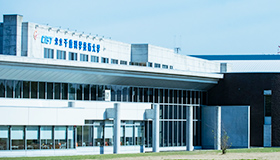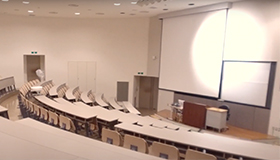Laboratories
Let’s look at research on “science and engineering,” which has the power to enrich society.
CIST offers a wide variety of research themes for students to systematically study “science” and “technology,” which are indispensable for the creation of a comfortable society. Why not look at science and engineering research at Chitose Institute of Science and Technology and experience the joy of turning scientific knowledge into technology?
Okoshi Laboratory – Professor Kento Okoshi
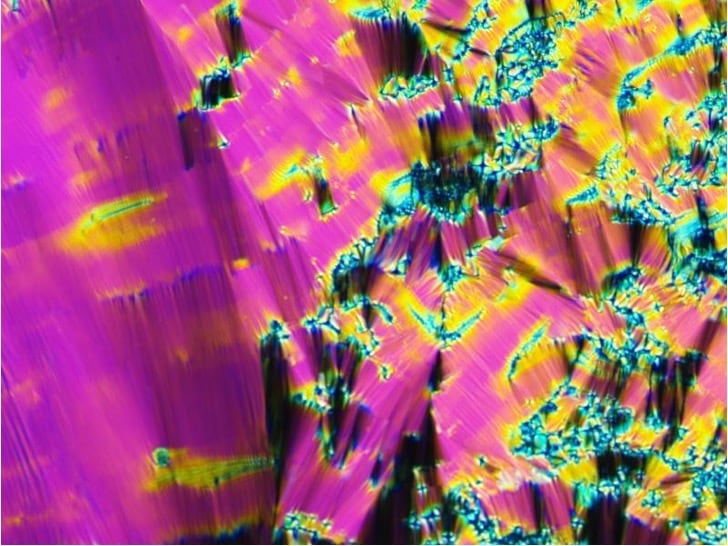
Searching for unpredictable properties of unexplored liquid crystals



We are creating novel liquid crystals and exploring their properties for optical devices: ultra-high-efficiency polarizing plate for liquid crystal displays, collaborating with the industrial sector.
Go to the detailed profile of Professor Okoshi →
Go to the Department of Applied Chemistry and Bioscience →
Related areas
We are creating novel liquid crystals and exploring their properties for optical devices: ultra-high-efficiency polarizing plate for liquid crystal displays, collaborating with the industrial sector.
Go to the detailed profile of Professor Okoshi →
Go to the Department of Applied Chemistry and Bioscience →
Tanio Laboratory – Professor Norihisa Tanio

Improving the optical properties of transparent polymers with the aim of applying them to next-generation optical technology


With the aim of improving the performance of transparent polymers, we are conducting research to deepen our understanding of the optical properties of polymers. Plant-derived transparent materials are also a subject of research.
Go to the detailed profile of Professor Tanio →
Go to the Department of Applied Chemistry and Bioscience →
Related areas
With the aim of improving the performance of transparent polymers, we are conducting research to deepen our understanding of the optical properties of polymers. Plant-derived transparent materials are also a subject of research.
Go to the detailed profile of Professor Tanio →
Go to the Department of Applied Chemistry and Bioscience →
Umemura Laboratory – Professor Nobuhiro Umemura
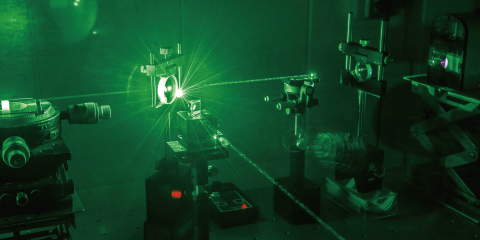
Creating new technologies by causing the evolution of lasers


By using nonlinear optical crystals, our laboratory can generate coherent laser sources from the vacuum ultraviolet to mid-infrared based on a solid-state laser. In addition, we also measure optical properties of crystal and glass used in laser equipment in the wide spectral range.
Go to the detailed profile of Professor Umemura →
Go to the Department of Applied Chemistry and Bioscience →
Related areas
By using nonlinear optical crystals, our laboratory can generate coherent laser sources from the vacuum ultraviolet to mid-infrared based on a solid-state laser. In addition, we also measure optical properties of crystal and glass used in laser equipment in the wide spectral range.
Go to the detailed profile of Professor Umemura →
Go to the Department of Applied Chemistry and Bioscience →
Karthaus Laboratory – Professor Olaf Karthaus
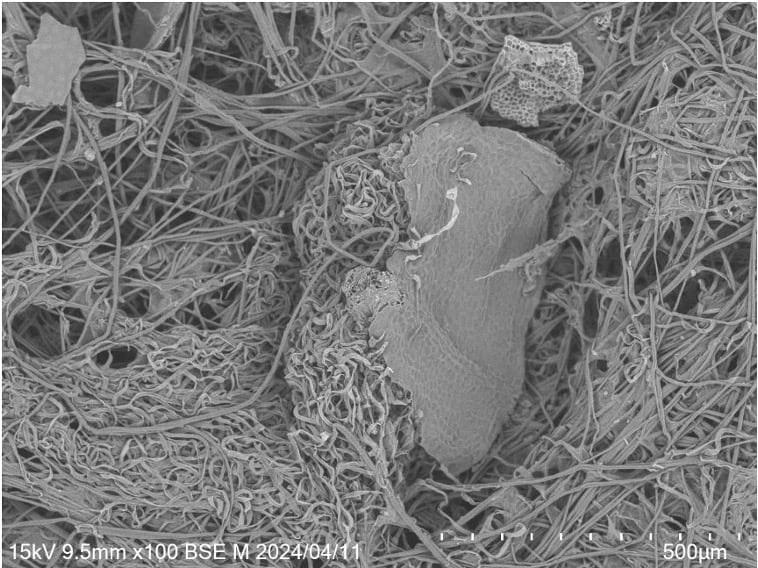
Learning from nature to produce environmentally friendly materials


Natural polymers are abundant, biodegradable and exhibit superior properties. By combining them with other materials and applying various processing techniques, we aim to produce novel materials with desired properties that lessen the burden on the environment.
Go to the detailed profile of Professor Karthaus →
Go to the Department of Applied Chemistry and Bioscience →
Related areas
Natural polymers are abundant, biodegradable and exhibit superior properties. By combining them with other materials and applying various processing techniques, we aim to produce novel materials with desired properties that lessen the burden on the environment.
Go to the detailed profile of Professor Karthaus →
Go to the Department of Applied Chemistry and Bioscience →
Kimura Laboratory – Professor Hiromi Kimura-Suda
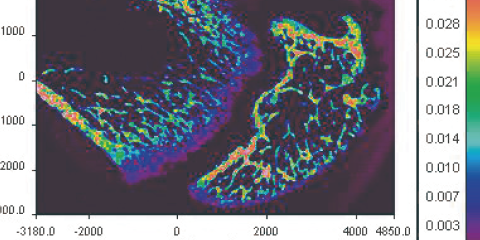
“Light” elucidating the mechanisms of diseases



In collaboration with experts in many different fields, we apply visible and infrared light to elucidate the mechanisms of such highly prevalent diseases as osteoporosis, chronic kidney disease, and arteriosclerosis.
Go to the detailed profile of Professor Kimura →
Go to the Department of Applied Chemistry and Bioscience →
Related areas
In collaboration with experts in many different fields, we apply visible and infrared light to elucidate the mechanisms of such highly prevalent diseases as osteoporosis, chronic kidney disease, and arteriosclerosis.
Go to the detailed profile of Professor Kimura →
Go to the Department of Applied Chemistry and Bioscience →
Takada Laboratory – Professor Tomoya Takada
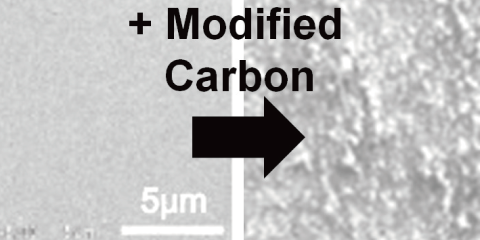
There are endless possibilities for new materials made from carbon.


We research methods to functionalize carbon materials and control their physical and chemical properties. We thus aim to develop novel materials used for various environmental and industrial purposes.
Go to the detailed profile of Professor Takada →
Go to the Department of Applied Chemistry and Bioscience →
Related areas
We research methods to functionalize carbon materials and control their physical and chemical properties. We thus aim to develop novel materials used for various environmental and industrial purposes.
Go to the detailed profile of Professor Takada →
Go to the Department of Applied Chemistry and Bioscience →
Horino Laboratory – Professor Yoshikazu Horino
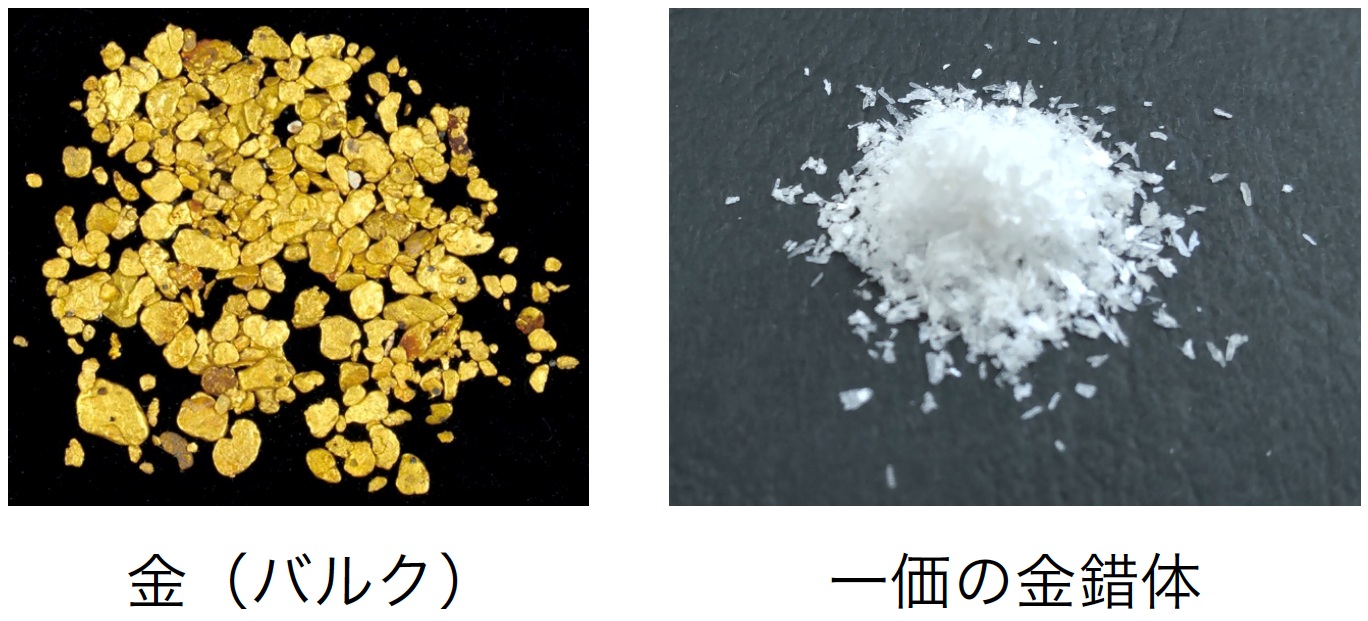
The discovery of new reactive species expands the possibilities of synthetic organic chemistry.

Our main research focus is organometallic chemistry, which involves the development of new molecular transformation reactions and the synthesis of functional molecules. The power of organic chemistry creates useful molecules.
Go to the detailed profile of Professor Horino →
Go to the Department of Applied Chemistry and Bioscience →
Related areas
Our main research focus is organometallic chemistry, which involves the development of new molecular transformation reactions and the synthesis of functional molecules. The power of organic chemistry creates useful molecules.
Go to the detailed profile of Professor Horino →
Go to the Department of Applied Chemistry and Bioscience →
Morohashi Laboratory – Professor Kengo Morohashi
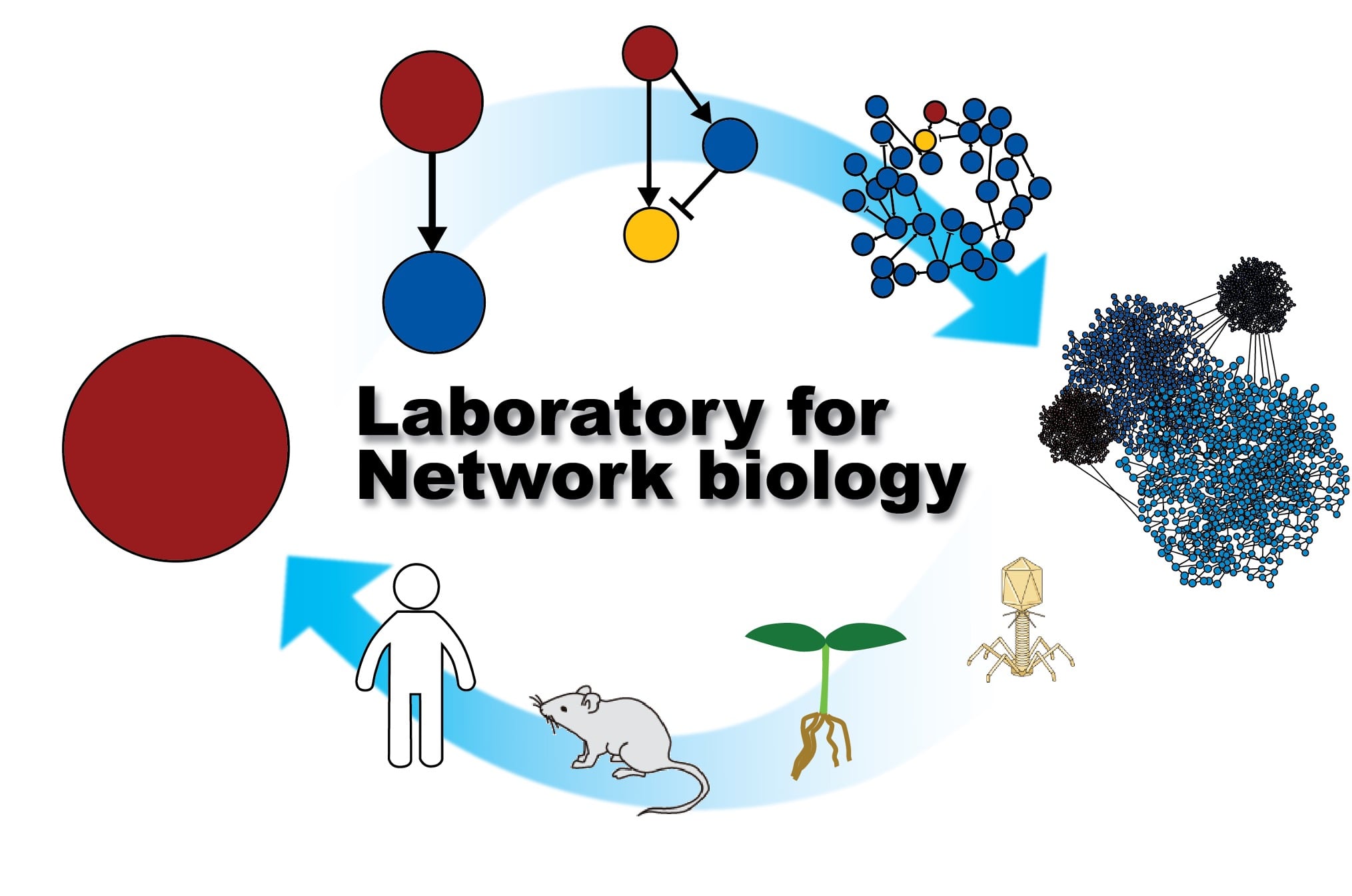
Digital x Biology – Understanding and applying the ultra-functional information processing capabilities of living organisms


Our research interest is to understand the biological significance of networks that arise in living organisms. These networks, which are controlled by the genes encoded in the genome, have a profound impact on our biological systems. By conducting both biological and informatics experiments, we are currently tackling the big challenges in this field.
Go to the detailed profile of Professor Morohashi →
Go to the Department of Applied Chemistry and Bioscience →
Related areas
Our research interest is to understand the biological significance of networks that arise in living organisms. These networks, which are controlled by the genes encoded in the genome, have a profound impact on our biological systems. By conducting both biological and informatics experiments, we are currently tackling the big challenges in this field.
Go to the detailed profile of Professor Morohashi →
Go to the Department of Applied Chemistry and Bioscience →
Ide Laboratory – Associate Professor Jun’ichiro Ide
.png)
Unraveling the relationship between forests and people based on the movement of water


Our research focuses on the roles of forests in a basin environment and people’s lives by elucidating the mechanism whereby forests play a role in determining the water quality. Advanced analysis technology is used to analyze substances in water in various environments and explore their origins.
Go to the detailed profile of Associate Professor Ide →
Go to the Department of Applied Chemistry and Bioscience →
Related areas
Our research focuses on the roles of forests in a basin environment and people’s lives by elucidating the mechanism whereby forests play a role in determining the water quality. Advanced analysis technology is used to analyze substances in water in various environments and explore their origins.
Go to the detailed profile of Associate Professor Ide →
Go to the Department of Applied Chemistry and Bioscience →
Tanaka Laboratory – Associate Professor Hisaaki Tanaka
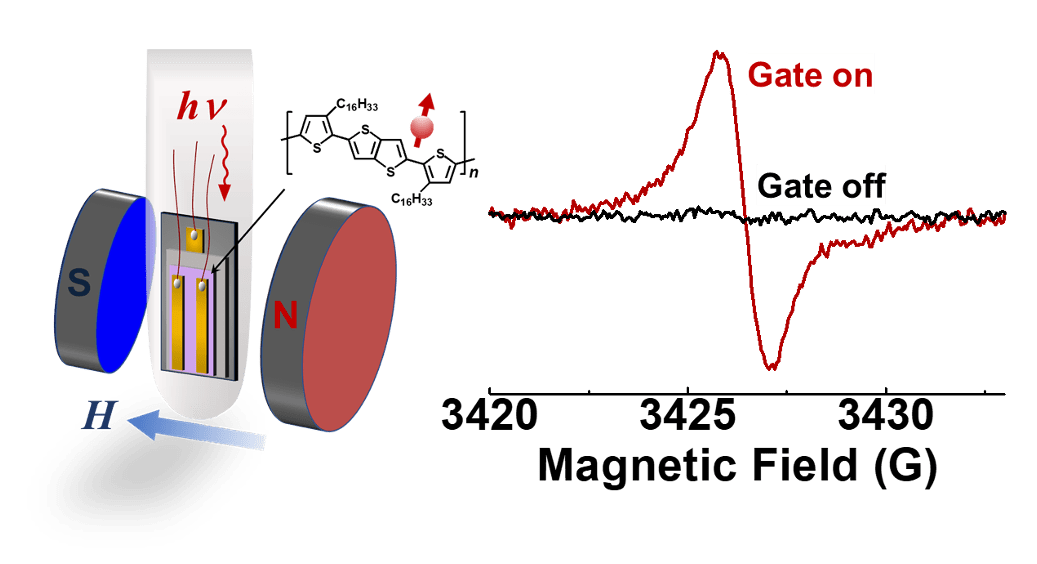
Exploring the potentiality of organic electronic materials through the microscopic observation of charge carriers.




Go to the Department of Applied Chemistry and Bioscience →
Related areas
Our target is organic semiconductor materials, which can be applied to the next-generation flexible electronic devices. We use electron spin as a microscopic probe of charge carriers in such organic devices. From the microscopic information of electron spins, we explore the novel/innovative electronic functions of organic molecules.
Go to the detailed profile of Associate Professor Tanaka →Go to the Department of Applied Chemistry and Bioscience →
Hirai Laboratory – Associate Professor Yuji Hirai
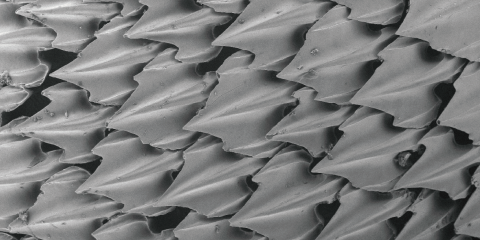
Creating excellent things by learning from the functions of the natural world


Structures and materials in the natural world are now the center of attention. Through fieldwork in which organisms are collected and researched, the laboratory aims to create artificial functional materials that reduce the burden on the environment.
Go to the detailed profile of Associate Professor Hirai →
Go to the Department of Applied Chemistry and Bioscience →
Related areas
Structures and materials in the natural world are now the center of attention. Through fieldwork in which organisms are collected and researched, the laboratory aims to create artificial functional materials that reduce the burden on the environment.
Go to the detailed profile of Associate Professor Hirai →
Go to the Department of Applied Chemistry and Bioscience →
Matsui Laboratory – Associate Professor Daisuke Matsui
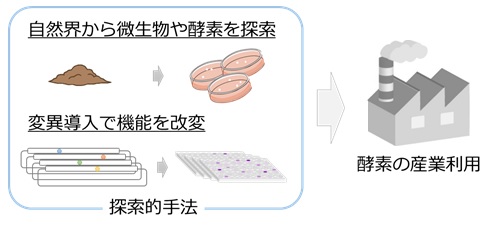
Enzyme-hunting for future industrial applications!

We screen enzymes from microorganisms, animals and plants, and improve the functions of enzymes by directed evolution, with the aim of future industrial application.
Go to the detailed profile of Associate Professor Matsui →
Go to the Department of Applied Chemistry and Bioscience →
Related areas
We screen enzymes from microorganisms, animals and plants, and improve the functions of enzymes by directed evolution, with the aim of future industrial application.
Go to the detailed profile of Associate Professor Matsui →
Go to the Department of Applied Chemistry and Bioscience →
Wakizaka Laboratory – Associate Professor Masanori Wakizaka
.jpg)
Exploring the nano and quantum worlds through chemical synthesis


Nanomaterials and quantum materials are materials that support key next generation technologies. Measurement and analysis of original samples synthesized in the laboratory will lead to the creation of new materials.
Go to the detailed profile of Associate Professor Wakizaka →
Go to the Department of Applied Chemistry and Bioscience →
Related areas
Nanomaterials and quantum materials are materials that support key next generation technologies. Measurement and analysis of original samples synthesized in the laboratory will lead to the creation of new materials.
Go to the detailed profile of Associate Professor Wakizaka →
Go to the Department of Applied Chemistry and Bioscience →
Yamanaka Laboratory – Professor Akio Yamanaka
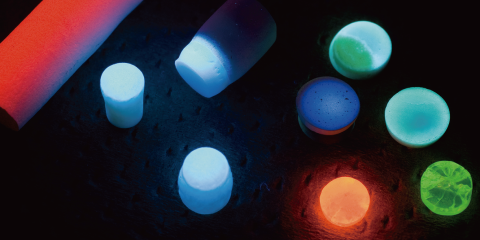
A wide variety of glowing substances can be used as materials of new equipment and devices.

Our main research targets are brightly colored glowing substances such as oxides, which are compounds of metal elements and oxygen, and luminescent ceramics. We also collaborate with companies to research the application of these substances to optical devices.
Go to the detailed profile of Professor Yamanaka →
Go to the Department of Opto-Electronic System Engineering →
Related areas
Our main research targets are brightly colored glowing substances such as oxides, which are compounds of metal elements and oxygen, and luminescent ceramics. We also collaborate with companies to research the application of these substances to optical devices.
Go to the detailed profile of Professor Yamanaka →
Go to the Department of Opto-Electronic System Engineering →
Yoshimoto Laboratory – Professor Naoto Yoshimoto
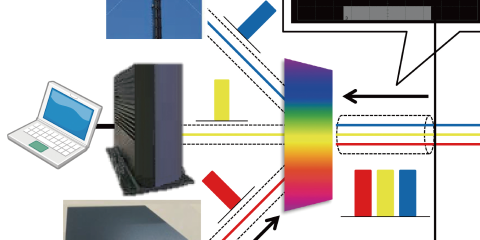
A new network will connect all people and things.


To realize a next-generation communication network that comfortably connects all people and things, we are taking every effort to build a common network infrastructure by combining optical and wireless access.
Go to the detailed profile of Professor Yoshimoto →
Go to the Department of Opto-Electronic System Engineering →
Related areas
To realize a next-generation communication network that comfortably connects all people and things, we are taking every effort to build a common network infrastructure by combining optical and wireless access.
Go to the detailed profile of Professor Yoshimoto →
Go to the Department of Opto-Electronic System Engineering →
Karasawa Laboratory – Professor Naoki Karasawa
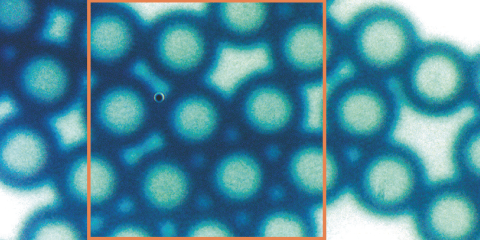
The immeasurable expansion of super-instantaneous lasers


An ultrashort light pulse is a laser that glows super-instantaneously. We research new possibilities of applying this advanced technology in the potential fields of circuits, modeling, and diagnosis.
Go to the detailed profile of Professor Karasawa →
Go to the Department of Opto-Electronic System Engineering →
Related areas
An ultrashort light pulse is a laser that glows super-instantaneously. We research new possibilities of applying this advanced technology in the potential fields of circuits, modeling, and diagnosis.
Go to the detailed profile of Professor Karasawa →
Go to the Department of Opto-Electronic System Engineering →
Aoki Laboratory – Professor Hirooki Aoki
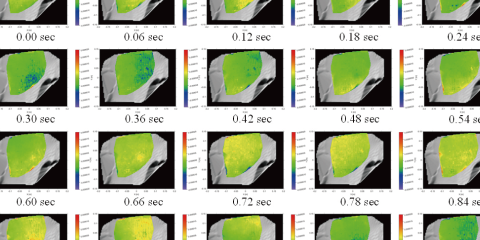
Measuring the human body using 3D images to support medical care and welfare


Research and development activities involve image measurement such as “non-contact biometric measurement” that visualizes the movement of the heart with 3D shaped measurement technology, and exercise-supporting systems that utilize illusions.
Go to the detailed profile of Professor Aoki →
Go to the Department of Opto-Electronic System Engineering →
Related areas
Research and development activities involve image measurement such as “non-contact biometric measurement” that visualizes the movement of the heart with 3D shaped measurement technology, and exercise-supporting systems that utilize illusions.
Go to the detailed profile of Professor Aoki →
Go to the Department of Opto-Electronic System Engineering →
Eguchi Laboratory – Professor Masashi Eguchi
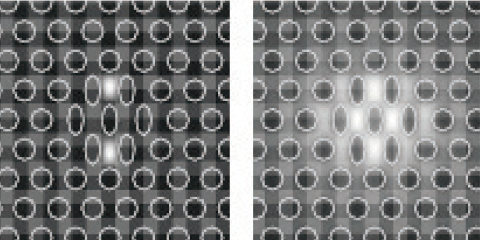
How to realize faster and larger capacity optical fibers?



Basic research to realize faster and larger capacity optical fibers is being conducted, and includes the analysis of photonic crystal fibers, the proposal of new structures, and efficient simulation/analysis methods.
Go to the detailed profile of Professor Eguchi →
Go to the Department of Opto-Electronic System Engineering →
Related areas
Basic research to realize faster and larger capacity optical fibers is being conducted, and includes the analysis of photonic crystal fibers, the proposal of new structures, and efficient simulation/analysis methods.
Go to the detailed profile of Professor Eguchi →
Go to the Department of Opto-Electronic System Engineering →
Oda Laboratory – Professor Naoki Oda
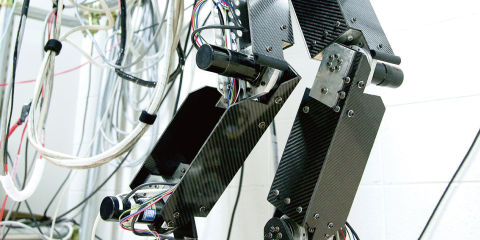
Hoping to support industry and daily life with robot technology

Our research subjects include various robots such as bipedal walking robots and robot wheelchairs to enhance the robot motion control technology and human/environment sensing technology required for human life support.
Go to the detailed profile of Professor Naoki Oda →
Go to the Department of Opto-Electronic System Engineering →
Related areas
Our research subjects include various robots such as bipedal walking robots and robot wheelchairs to enhance the robot motion control technology and human/environment sensing technology required for human life support.
Go to the detailed profile of Professor Naoki Oda →
Go to the Department of Opto-Electronic System Engineering →
Hasegawa Laboratory – Professor Makoto Hasegawa
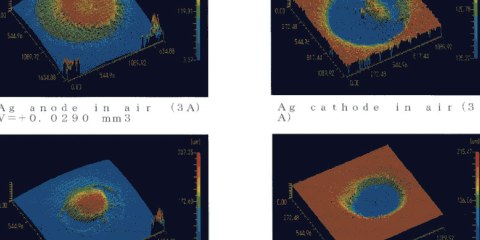
The profoundness of switch technology, which supports all systems


By constructing a unique 3D shape measuring system, the laboratory aims to improve the performance of electrical and mechanical switching devices, which are key technologies in daily life.
Go to the detailed profile of Professor Hasegawa →
Go to the Department of Opto-Electronic System Engineering →
Related areas
By constructing a unique 3D shape measuring system, the laboratory aims to improve the performance of electrical and mechanical switching devices, which are key technologies in daily life.
Go to the detailed profile of Professor Hasegawa →
Go to the Department of Opto-Electronic System Engineering →
Fukuda Laboratory – Professor Makoto Fukuda
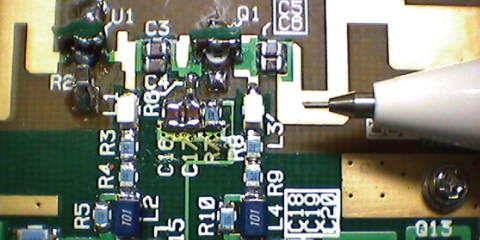
Learn how interesting craftmanship by designing electronic circuits.

Students master the basics of analog electronic circuits and the design of electronic circuits using personal computers. They also learn high-frequency electronics technology, which is indispensable for wireless communications such as smartphones and Wi-Fi.
Go to the detailed profile of Professor Fukuda →
Go to the Department of Opto-Electronic System Engineering →
Related areas
Students master the basics of analog electronic circuits and the design of electronic circuits using personal computers. They also learn high-frequency electronics technology, which is indispensable for wireless communications such as smartphones and Wi-Fi.
Go to the detailed profile of Professor Fukuda →
Go to the Department of Opto-Electronic System Engineering →
Yamada Laboratory – Professor Takashi Yamada
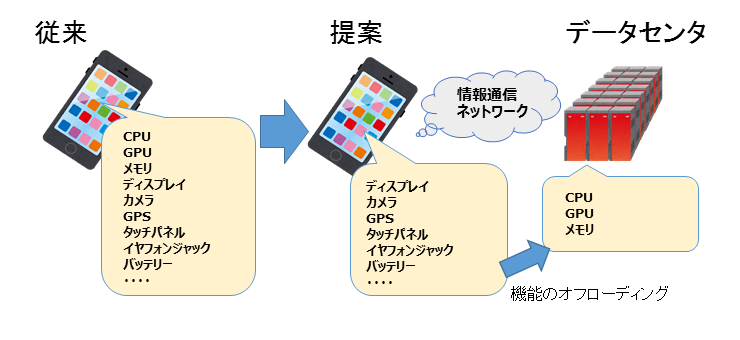
Accelerate your communication-based computing.


With the aim of deploying high-performance computing resources that are available in devices such as smartphones and PCs on the network, we are working to solve various issues that arise during this process.
Go to the detailed profile of Professor Yamada →
Go to the Department of Opto-Electronic System Engineering →
Related areas
With the aim of deploying high-performance computing resources that are available in devices such as smartphones and PCs on the network, we are working to solve various issues that arise during this process.
Go to the detailed profile of Professor Yamada →
Go to the Department of Opto-Electronic System Engineering →
Yokoi Laboratory – Professor Naomichi Yokoi
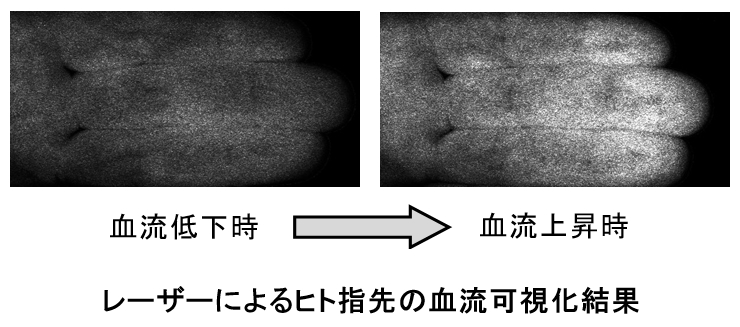
How can light contribute to the future of medical care?



We are studying the relationship between light and medicine from multifaceted perspectives, including the prevention of nosocomial infections based on the monitoring of hygiene conditions using light, without being bound by the conventional framework of diagnosis using light.
Go to the detailed profile of Professor Yokoi →
Go to the Department of Opto-Electronic System Engineering →
Related areas
We are studying the relationship between light and medicine from multifaceted perspectives, including the prevention of nosocomial infections based on the monitoring of hygiene conditions using light, without being bound by the conventional framework of diagnosis using light.
Go to the detailed profile of Professor Yokoi →
Go to the Department of Opto-Electronic System Engineering →
Oda Laboratory – Associate Professor Hisaya Oda
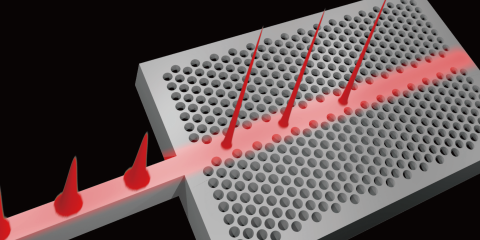
Hoping to create unprecedented technology using artificial crystals that control light

A photonic crystal has a nanostructure of which the refractive index changes periodically. We use it as an optical semiconductor to research its application to new devices that control light.
Go to the detailed profile of Associate Professor Hisaya Oda →
Go to the Department of Opto-Electronic System Engineering →
Related areas
A photonic crystal has a nanostructure of which the refractive index changes periodically. We use it as an optical semiconductor to research its application to new devices that control light.
Go to the detailed profile of Associate Professor Hisaya Oda →
Go to the Department of Opto-Electronic System Engineering →
Takashima Laboratory – Associate Professor Hideaki Takashima
.jpg)
Development of a new quantum light source to realize light quantum technology



We are developing new quantum devices based on nanophotonics to realize optical quantum technologies such as light-based quantum computers and the quantum Internet.
Go to the detailed profile of Associate Professor Takashima →
Go to the Department of Opto-Electronic System Engineering →
Related areas
We are developing new quantum devices based on nanophotonics to realize optical quantum technologies such as light-based quantum computers and the quantum Internet.
Go to the detailed profile of Associate Professor Takashima →
Go to the Department of Opto-Electronic System Engineering →
Haruta Laboratory – Associate Professor Makito Haruta
.jpg)
Ultra-compact bio-implantable devices are used to reveal the functions of living organisms.



We develop technologies involved in the development of COMS image sensors based on CMOS integrated circuit design and the implementation of devices for biomedical measurement as part of next-generation fusion research aimed at its practical application to medicine, agriculture, and other fields.
Go to the detailed profile of Associate Professor Haruta →
Go to the Department of Opto-Electronic System Engineering →
Related areas
We develop technologies involved in the development of COMS image sensors based on CMOS integrated circuit design and the implementation of devices for biomedical measurement as part of next-generation fusion research aimed at its practical application to medicine, agriculture, and other fields.
Go to the detailed profile of Associate Professor Haruta →
Go to the Department of Opto-Electronic System Engineering →
Komatsugawa/Yamakawa Laboratory – Professor Hiroshi Komatsugawa
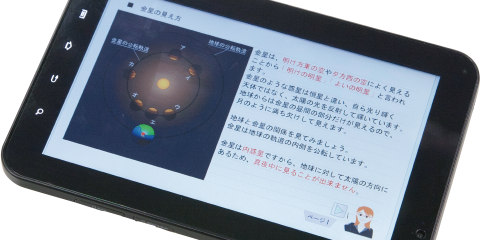
Aiming to realize a next-generation information system that can comfortably be used by anyone


Based on such themes as the training of ICT specialists and the development of next-generation applications, we research intelligent systems that utilize mobile devices in collaboration with companies.
Go to the detailed profile of Professor Komatsugawa →
Go to the Department of Information Systems Engineering →
Related areas
Based on such themes as the training of ICT specialists and the development of next-generation applications, we research intelligent systems that utilize mobile devices in collaboration with companies.
Go to the detailed profile of Professor Komatsugawa →
Go to the Department of Information Systems Engineering →
Kobayashi Laboratory – Professor Daiji Kobayashi
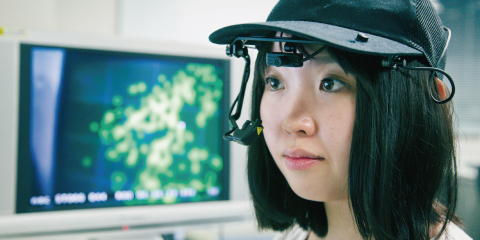
Studying Human-Computer Interaction to enhance human capabilities and wellbeing in a society influenced by interactions with robotic, intelligent, and autonomous systems.



Based on human factors and ergonomics, we address Human-Computer Interaction (HCI) issues concerning the interaction between traffic users, such as drivers and pedestrians, and automatically operated buses, utilizing digital twin technology within a cross-reality system. Additionally, design factors enhancing human capabilities when interacting with virtual environments such as the metaverse are studied.
Go to the detailed profile of Professor Kobayashi →
Go to the Department of Information Systems Engineering →
Related areas
Based on human factors and ergonomics, we address Human-Computer Interaction (HCI) issues concerning the interaction between traffic users, such as drivers and pedestrians, and automatically operated buses, utilizing digital twin technology within a cross-reality system. Additionally, design factors enhancing human capabilities when interacting with virtual environments such as the metaverse are studied.
Go to the detailed profile of Professor Kobayashi →
Go to the Department of Information Systems Engineering →
Soga Laboratory – Professor Toshioki Soga

Conduct research on the use of machine learning, AI algorithms, IoT, and other technologies to provide users with the value and experience of various services, including tourism services.



Our research focuses on a tourism DX that provides users with rich ecosystem services in the area around Chitose City, while respecting ecosystems including biodiversity, using machine learning and other AI algorithms to provide users with data collected using cameras and sensors. We are also working on services that use AR/MR and other user experiences based on immersive experiences through empirical research based on usability engineering.
Go to the detailed profile of Professor Soga →
Go to the Department of Information Systems Engineering →
Related areas
Our research focuses on a tourism DX that provides users with rich ecosystem services in the area around Chitose City, while respecting ecosystems including biodiversity, using machine learning and other AI algorithms to provide users with data collected using cameras and sensors. We are also working on services that use AR/MR and other user experiences based on immersive experiences through empirical research based on usability engineering.
Go to the detailed profile of Professor Soga →
Go to the Department of Information Systems Engineering →
Hagihara Laboratory – Professor Shigeki Hagihara
.png)
Using mathematics to develop dependable software and secure protocols


We continue to research the construction of dependable software and secure protocols that are not vulnerable to attacks, using a mathematics-based approach called a formal method.
Go to the detailed profile of Professor Hagihara →
Go to the Department of Information Systems Engineering →
Related areas
We continue to research the construction of dependable software and secure protocols that are not vulnerable to attacks, using a mathematics-based approach called a formal method.
Go to the detailed profile of Professor Hagihara →
Go to the Department of Information Systems Engineering →
Fukuda Laboratory – Professor Hiroshi Fukuda
(%E6%95%99%E8%82%B2%E9%80%A3%E6%90%BA%E3%83%BB%E7%A0%94%E7%A9%B6%E6%94%AF%E6%8F%B4%E8%AA%B2%E8%BF%BD%E5%8A%A0).png)
Further accelerating cutting-edge information and communication technology



We promote research into the application of LSI technology, which has supported information processing for many years, to future optical communications. The challenge is to make full use of both hard- and software.
Go to the detailed profile of Professor Hiroshi Fukuda →
Go to the Department of Information Systems Engineering →
Related areas
We promote research into the application of LSI technology, which has supported information processing for many years, to future optical communications. The challenge is to make full use of both hard- and software.
Go to the detailed profile of Professor Hiroshi Fukuda →
Go to the Department of Information Systems Engineering →
Misawa Laboratory – Professor Akira Misawa
.png)
IoT sensor networks for the application of ICT to all industries


The aim is to find and solve problems in everyday life, including the fields of traffic information and health management, with the combined use of sensing technology, information processing and communication technology based on examples of the most advanced IoT systems.
Go to the detailed profile of Professor Misawa →
Go to the Department of Information Systems Engineering →
Related areas
The aim is to find and solve problems in everyday life, including the fields of traffic information and health management, with the combined use of sensing technology, information processing and communication technology based on examples of the most advanced IoT systems.
Go to the detailed profile of Professor Misawa →
Go to the Department of Information Systems Engineering →
Yamabayashi Laboratory – Professor Yoshiaki Yamabayashi
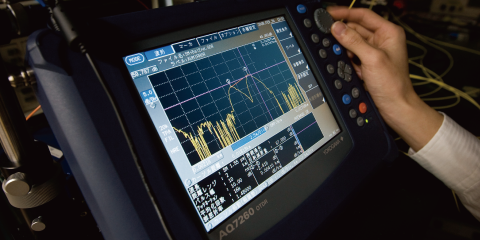
There is a way to utilize existing resources for new technologies.


We are researching ultra-high-speed transmission using multimode fibers making effective use of existing optical fibers in buildings. Our research also involves measurement technology that uses the reflection of light pulses.
Go to the detailed profile of Professor Yamabayashi →
Go to the Department of Information Systems Engineering →
Related areas
We are researching ultra-high-speed transmission using multimode fibers making effective use of existing optical fibers in buildings. Our research also involves measurement technology that uses the reflection of light pulses.
Go to the detailed profile of Professor Yamabayashi →
Go to the Department of Information Systems Engineering →
Ishida Laboratory – Associate Professor Yukiya Ishida

Research on Educational Technology for PBL, Information and Technology Education, and Higher Education including career support


We are researching the use of ICT in the educational setting. Classes and teaching materials are designed and developed based on analysis of the current situation, and the quality is then enhanced by adding improvements based on evaluation from the user's point of view after actual use.
Go to the detailed profile of Associate Professor Ishida →
Go to the Department of Information Systems Engineering →
Related areas
We are researching the use of ICT in the educational setting. Classes and teaching materials are designed and developed based on analysis of the current situation, and the quality is then enhanced by adding improvements based on evaluation from the user's point of view after actual use.
Go to the detailed profile of Associate Professor Ishida →
Go to the Department of Information Systems Engineering →
Takano Laboratory – Associate Professor Yasuhiro Takano
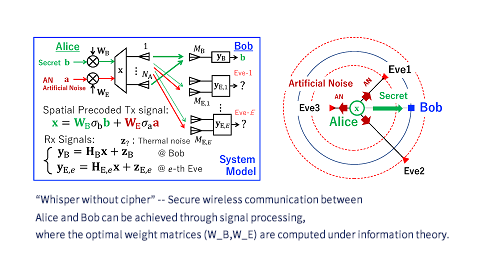
Secret communication in public!?

Information-theoretic secure transmission methods that use the characteristics of the propagation path to achieve "whispering" with a specific party are combined with conventional encryption to explore IoT communications with adaptive security strength.
Go to the detailed profile of Associate Professor Takano →
Go to the Department of Information Systems Engineering →
Related areas
Information-theoretic secure transmission methods that use the characteristics of the propagation path to achieve "whispering" with a specific party are combined with conventional encryption to explore IoT communications with adaptive security strength.
Go to the detailed profile of Associate Professor Takano →
Go to the Department of Information Systems Engineering →
Fukamachi Laboratory – Full time Lecturer Kenichi Fukamachi
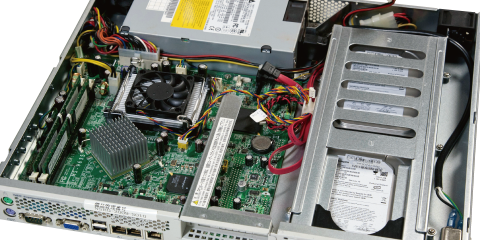
Utilizing networks and big data to create a more comfortable society


Through the security, management, and operation of networks that connect computers, as well as programming and the development of server equipment itself, we are exploring the "possibilities of what can be achieved" with them.
Go to the detailed profile of Lecturer Fukamachi →
Go to the Department of Information Systems Engineering →
Related areas
Through the security, management, and operation of networks that connect computers, as well as programming and the development of server equipment itself, we are exploring the "possibilities of what can be achieved" with them.
Go to the detailed profile of Lecturer Fukamachi →
Go to the Department of Information Systems Engineering →

